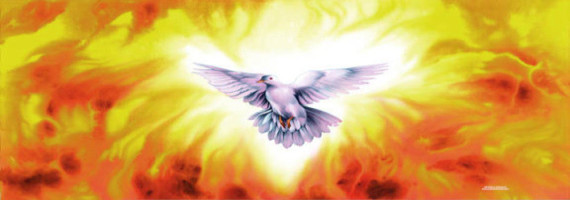Fear is always present, but is typically unconscious
11-03-2019 00:00Upon hearing these facts, many people would claim that they do not always feel fear; and, in one sense, they are correct. People do not always feel their perpetually-present fear, but fear is, nevertheless, always present.
Fear is always existent, at least in the unconscious "part" of the mind. God Creates the human structure such that fear is always present for the sake of preservation (or survival), and Designs the human such that the fear remains unconscious until it is needed to spur immediate and conscious action. For example, you and a close friend are walking along a path in the woods, having a cordial discussion, and consciously feeling rather peaceful and that "all is well". The gently-blowing air is fresh, the birds are singing, and the forest is absolutely beautiful. Then, you round a bend, and suddenly come upon a huge poisonous snake, with its fangs extended, and hissing at you. It is less than six feet from you. Do you remain serene, tranquil, quietly talkative, and easy in your stride, or does your mood and personal demeanor change? If you are a sane individual, you become consciously fearful and tense, your heartbeat and respiration rise dramatically, and you run faster than the now-forgotten fresh breeze. From where did the fear and tension come, and how did they arise? Upon seeing the snake, you did not stop and slowly and rationally think to yourself: "There is a potential hazard to my life, or that of my friend. There is a possibility that the snake could bite. He does not look pleased for us to be here. This would be a good time to become fearful and ru n. Perhaps I should consult with my friend and see if he concurs. I would not want to leave him here alone. Maybe he will agree that we can run now, and continue our walk later.".
The fear that is consciously and spontaneously experienced, did not simply manifest out of nothing. So, where was it prior to you happening upon the potentially-fatal critter? The fear was always existent and active in the unconscious "part" of the mind, and it came to the fore when it was required to compel unusual actions. (The human mind is actually one mind, in that there are not two minds: one conscious and the other unconscious. There are merely aspects and functions of the one mind of which one is aware or conscious; and there are aspects and functions of the one mind of which one is not aware, or of which one is unconscious. You have only one mind, but a small part of it operates consciously, and the majority of it works unconsciously.)
For the sake of its survival, God Designs humanity such that fear is always present unconsciously. That unconscious fear drives every person in every moment. By definition, a person is not conscious of unconscious fear; yet, the unconscious fear still drives him in every moment. One's always-present unconscious fear, becomes conscious only when a person perceives that his life is immediately threatened, or when one of his other two egoic needs - pleasure or vanity - is likewise thought to be immediately threatened.
Conscious fear is temporary, and spurs one into immediate, powerful, and unusually-hasty actions to protect oneself and that to which one is clinging; while unconscious fear is a continual and powerful undercurrent and guide of one's mind, speech, demeanor, and specific actions. Unconscious fear comes to the fore as conscious fear, when a perceived threat requires immediate, hasty, and powerful action.
Unconscious fear compels the type of thinking, speech, demeanor, and specific actions which are observed in all natural persons most of the time; and those behaviors and appearances seem much more methodical, organized, and peaceful than those compelled by conscious fear. People leisurely walking through a shopping mall typically display the outward effects of unconscious fear, while those trapped in a burning building exhibit the signs of conscious fear. Whether fear is conscious or unconscious in any given moment, a person is always acting because of fear, and according to fear.
All people are always fearing, either consciously or unconsciously, or both; and, they are most essentially fearing present and future suffering.
And, along The Way, it is that very core-level fear which is individuality or egoity, that is Removed primarily by Grace, and by the follower's Faithful, Sacrificial, and Prayerful participation in that Grace.
Furthermore, when the fear-individuality is Faithfully, Sacrificially, and Prayerfully relinquished, the things and ways of nature within and without to which the fear causes one to cling, are also and spontaneously relinquished, even while in the midst of them.
Dava Prakasha
———
Terug